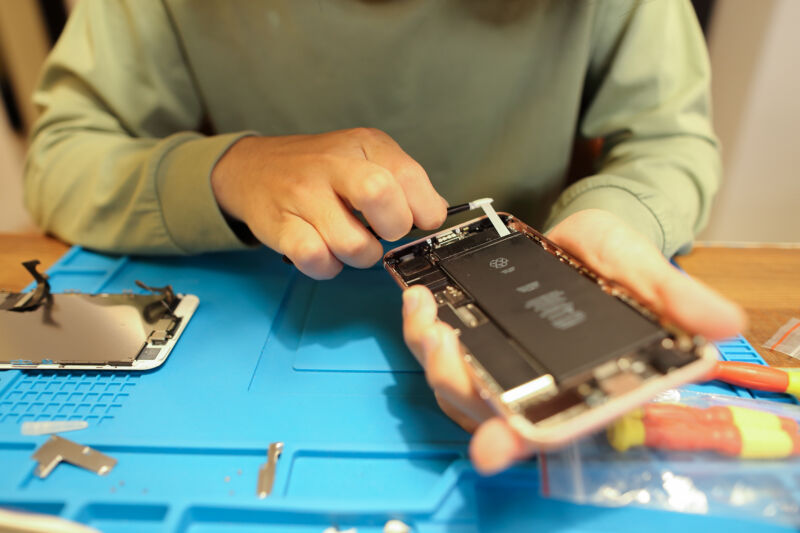
Getty Images
Oregon has joined the small but growing list of states that have passed right-to-repair legislation. Oregon’s bill stands out for a provision that would prevent companies from requiring that official parts be unlocked with encrypted software checks before they will fully function.
Bill SB 1596 passed Oregon’s House by a 42 to 13 margin. Gov. Tina Kotek has five days to sign the bill into law. Consumer groups and right-to-repair advocates praised the bill as “the best bill yet,” while the bill’s chief sponsor, state Sen. Janeen Sollman (D), pointed to potential waste reductions and an improved second-hand market for closing a digital divide.
“Oregon improves on Right to Repair laws in California, Minnesota and New York by making sure that consumers have the choice of buying new parts, used parts, or third-party parts for the gadgets and gizmos,” said Gay Gordon-Byrne, executive director of Repair.org, in a statement.
Like bills passed in New York, California, and Minnesota, Oregon’s bill requires companies to offer the same parts, tools, and documentation to individual and independent repair shops that are already offered to authorized repair technicians.
Unlike other states’ bills, however, Oregon’s bill doesn’t demand a set number of years after device manufacture for such repair implements to be produced. That suggests companies could effectively close their repair channels entirely rather than comply with the new requirements. California’s bill mandated seven years of availability.
If signed, the law’s requirements for parts, tools, and documentation would apply to devices sold after 2015, except for phones, which are covered after July 2021. The prohibition against parts pairing only covers devices sold in 2025 and later. Like other repair bills, a number of device categories are exempted, including video game consoles, HVAC and medical gear, solar systems, vehicles, and, very specifically, “Electric toothbrushes.”
Apple had surprised many with its support for California’s repair bill. But the company, notable for its pairing requirements for certain repair parts, opposed Oregon’s repair bill. John Perry, a senior manager for secure design at Apple, testified at an Oregon hearing that the pairing restriction would “undermine the security, safety, and privacy of Oregonians by forcing device manufacturers to allow the use of parts of unknown origin in consumer devices.”
Perry also noted Apple’s improved repair workflow, which no longer requires online access or a phone call to pair parts. Apple devices will still issue notifications and warnings if an unauthorized screen or battery, for example, is installed in an iPhone.
Disclosure: Kevin Purdy previously worked for iFixit. He has no financial ties to the company.




















+ There are no comments
Add yours